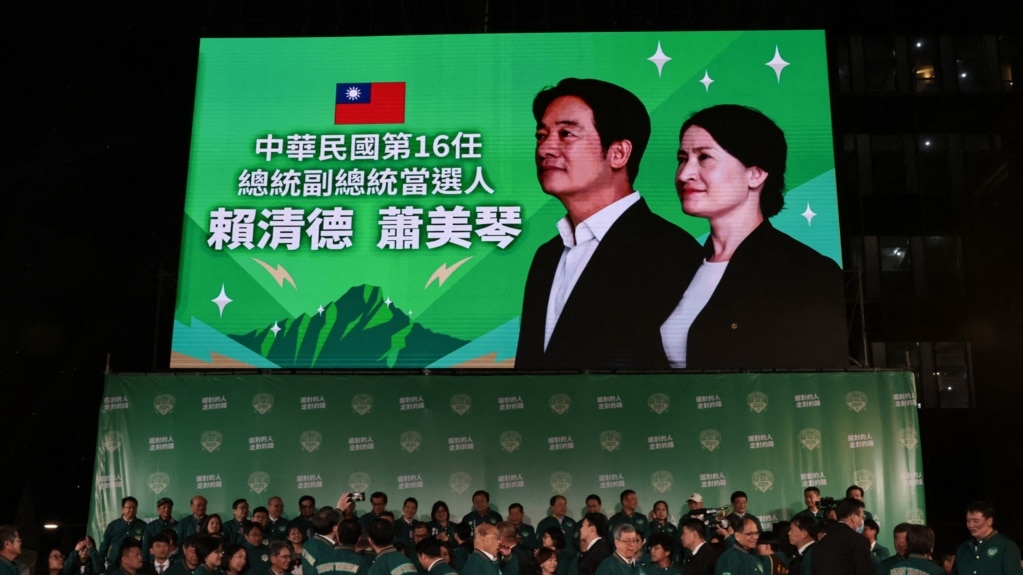During Taiwan’s presidential election on January 13, talk about voter fraud began to spread. In one widely seen video, an election official counting votes mistakenly gives a vote to the wrong candidate.
The message of the video was clear: The election results could not be trusted.
The stories of voter fraud were not true. Instead, they were the result of disinformation. Fact-checking groups in Taiwan quickly showed how the video, along with many others similar to it, were false.
MyGoPen is a Taiwanese fact-checking service. It found that the widely shared video had been edited to hide an important fact. The full unedited video shows that soon after the official made the mistake, other election workers corrected it.
Before the election, worries that fake news stories would threaten it had been growing. But Taiwan’s response to disinformation was fast and organized, with fact-checking groups and government working to reduce it.
Chinese influence
DoubleThink Lab is a non-profit based in Taipei, Taiwan. It says its research shows that China targeted Taiwan with disinformation ahead of the election.
The Chinese government has said the island of Taiwan belongs to China and should not be independent.
The Associated Press (AP) reports that the disinformation aimed to weaken support of Taiwan’s Democratic Progressive Party (DPP). AP reporters say the disinformation tried to make the DPP look like it was likely to start a war with China.
The false stories targeted U.S. support for Taiwan, arguing that America was only interested in Taiwan’s semiconductor exports and would not support the island if it came to war with China.
AP reporters left messages with the Chinese embassy in Washington on Saturday. The embassy did not immediately return those calls.
The DPP candidate, Lai Ching-te, won the January election. He defeated Ko Wen-je of the Taiwan People’s Party and Hou Yu-ih of the Nationalist Party (Kuomintang). Many experts view the election as centering on the island’s relationship with China.
Many supporters of the Taiwan People’s Party candidate are young. They had shared the false videos widely on TikTok. The videos were then shared on Facebook.
However, groups quickly showed how the videos were false. Taiwan’s Central Election Commission held a news conference to push back on claims of miscounting votes.
Influencers like @FroggyChiu, with more than 600,000 subscribers, also explained on YouTube how officials count the votes.
Taiwan’s organized response
Kenton Thibaut is an expert on Chinese disinformation at the Atlantic Council’s Digital Forensic Research Lab. She said Taiwan has been able to effectively respond to Chinese disinformation in part because of how seriously the threat is seen there. Thibault said Taiwan has used a “whole of society response.” The government, independent fact-checking groups and even private citizens are called to point out disinformation and propaganda.
Alexander Tah-Ray Yui is Taipei’s economic and cultural representative to the U.S. He said Taiwan’s government has learned it must identify and disprove false information as quickly as possible.
“Find it early, like a tumor or cancer. Cut it before it spreads,” Yui said.
Taiwan’s civil society groups have focused on raising public understanding of the issue.
Charles Yeh is the founder of MyGoPen. The group uses a chatbot service to help the public know if a story is false. He said he started MyGoPen because he saw how his family members would get confused by online rumors.
Educating the public about fake news and the digital environment is growing, but slowly.
“It’s like in the past when everyone dumped bottles and cans in the garbage and now they sort them”, said Eve Chiu. She is the editor-in-chief of Taiwan FactCheck Center, a nonprofit journalism organization. “Everyone needs to slowly develop this awareness, and this needs time,” she added.
Taiwan’s political divide
Political divisions may also affect the spread of disinformation in Taiwan. Ko, the Taiwan People’s Party (TPP) presidential candidate, said publicly he did not believe there was election fraud.
However, legislators from the TPP held a conference in which they shared videos of miscounting—videos that had already been proven false.
I’m Andrew Smith. And I'm Faith Pirlo.

